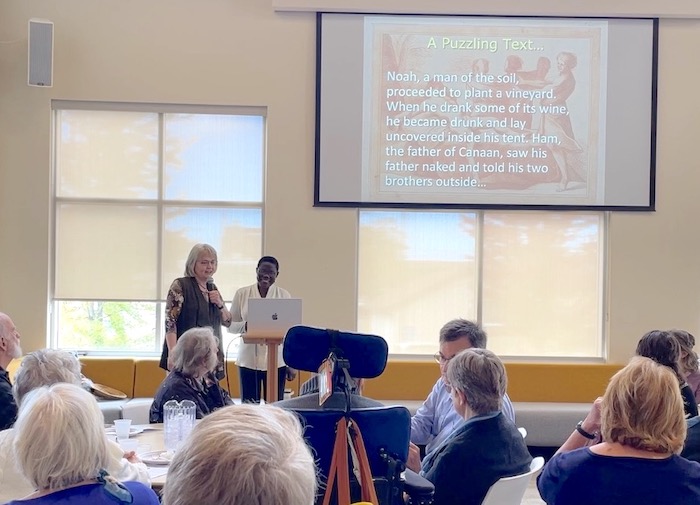Dr. Milly Erema is currently visiting the USA until November 29. While she is there she will be giving talks in Western Michigan and at the Evangelical Theological Society Meeting in San Antonio.
She has already given a two-week seminar at Pillar Church in Holland, Michigan called, “The Bible from an Insider’s Perspective.” When she studied at Western Seminary (Holland, MI), her professors were amazed at how she seemed to read the Bible from an insider’s perspective, because of growing up in an East African culture with traditional practices that resemble the Ancient Near East in many ways. Many puzzling passages make more sense in this context. She and Lois Tverberg, an author on Biblical cultural context, had a lively conversation about her “ancient” perspective on the Bible.
The pair will be giving two more seminars on the same topic at area churches that are open for anyone to attend. Please join us!
Sunday, November 5, 11:45 AM – Second Reformed Church, 225 E Central St, Zeeland, MI 49464 (Enter in the new “A” entrance in the back, off the lot on the corner of Cherry & Church streets.)
Wednesday, November 8, 6 PM – First Reformed Church, 630 State Street in Holland, MI 49423.
Hope you can join us! (We’ll try to put a video link online later.)
At the Evangelical Theological Society meeting
In San Antonio, Texas on Tuesday, November 14 at 4:30 PM, Dr. Erema will be giving an academic paper entitled,
Reading Psalm 82 from a Ugandan Cultural Perspective
Psalm 82 has been of recent interest because of Michael Heiser’s theory regarding divine council imagery. He sees the bene elohim (“sons of gods”) as divine beings that polytheist peoples worshiped as gods. Dr. Erema will share a contrasting interpretation based on how East African readers understand this imagery. The “sons of gods” are seen as human leaders who are called “gods” because their authority is seen as God-derived. This interpretation accords with the many times when foreign kings claim divine status throughout the Bible. Psalm 82 rebukes these “gods” for neglecting to bring justice to the widow and orphan, which is the universally-assumed responsibility of kings throughout the biblical text and in the Ancient Near East.
If you are going to the Evangelical Theological Society meeting, we hope you will attend.
